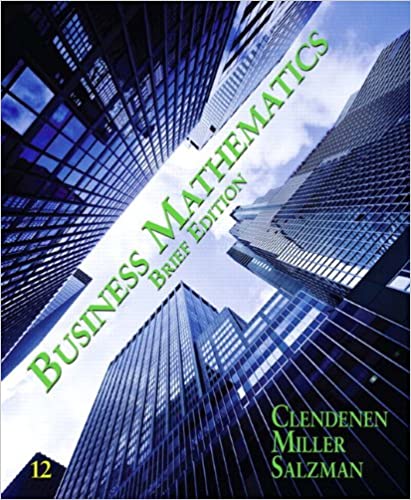
Business Mathematics Brief 12th Edition by Stanley Salzman ,Gary Clendenen, Charles Miller
Edition 12ISBN: 978-0132605540
Business Mathematics Brief 12th Edition by Stanley Salzman ,Gary Clendenen, Charles Miller
Edition 12ISBN: 978-0132605540 Exercise 156
What is the difference between fair market value and assessed value? How is the assessment rate used when finding the assessed value? (See Objective.)
Define fair market value and assessed value. A local tax assessor estimates the market value of all the land and buildings in an area. The fair market value is the price at which a property can reasonably be expected to be sold. The fair market value could be used to find the amount of the property tax. However, many tax authorities first find what is called the assessed value, by multiplying the fair market value by a percent called the assessment rate. The assessed value is then used to calculate the property tax. In fact, the only purpose of the assessed value is for use in finding the property tax. The assessment rate varies widely from 25, in some states to 100, in others.

Define fair market value and assessed value. A local tax assessor estimates the market value of all the land and buildings in an area. The fair market value is the price at which a property can reasonably be expected to be sold. The fair market value could be used to find the amount of the property tax. However, many tax authorities first find what is called the assessed value, by multiplying the fair market value by a percent called the assessment rate. The assessed value is then used to calculate the property tax. In fact, the only purpose of the assessed value is for use in finding the property tax. The assessment rate varies widely from 25, in some states to 100, in others.

Explanation
The fair market value is the price of a ...
Business Mathematics Brief 12th Edition by Stanley Salzman ,Gary Clendenen, Charles Miller
Why don’t you like this exercise?
Other Minimum 8 character and maximum 255 character
Character 255


